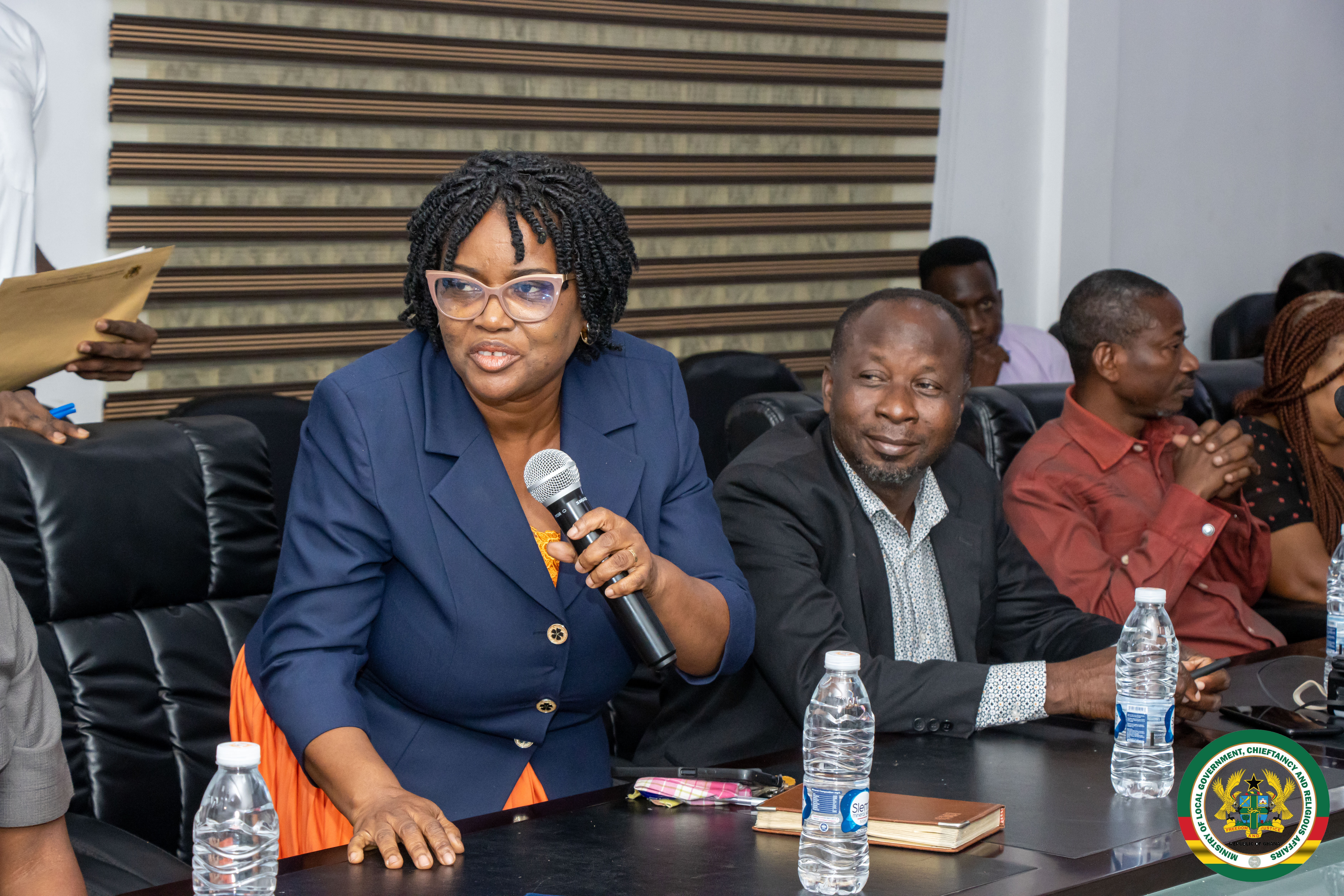The Ministry of Local Government, Chieftaincy and Religious Affairs (MLGCRA) on Monday, 4th August 2025, under the leadership of Hon. Ahmed Ibrahim, today held a strategic engagement with the Decentralisation Sector Working Group (DSWG) to review and fine-tune the draft National Decentralisation Policy and Strategy (2026–2030).
The high-level session forms part of the Ministry’s ongoing consultative process to ensure that the policy document is technically sound, contextually relevant, and broadly aligned with Ghana’s decentralisation and local governance objectives.
The meeting focused on the six key pillars of the draft policy; Political Decentralisation, Administrative Decentralisation, Fiscal Decentralisation, Local Economic Development, Popular Participation, and Accountable Governance. These thematic areas are central to Ghana’s agenda of empowering local governments, enhancing service delivery, and promoting inclusive development.
Participants also examined cross-cutting issues that must be integrated into the implementation of the strategy, including mindset and behavioural change, technological innovation, gender inclusivity, climate change, and the Government’s 24-Hour Economy Programme, which aims to expand economic productivity and access to services around the clock.
In his remarks, Hon. Ahmed Ibrahim emphasized the Ministry’s commitment to a transformative and responsive decentralisation framework. “The National Decentralisation Policy and Strategy must go beyond institutional reform, it must speak to the aspirations of Ghanaians for inclusive governance, local prosperity, and resilient communities,” he stated.
The Decentralisation Sector Working Group, made up of key stakeholders from government, development partners, civil society, and academia, lauded the Ministry’s inclusive approach and provided valuable inputs to strengthen the content and structure of the draft document.
Source: Darling Maame Efua Cann
(Public Relations Unit- MLGCRA)



